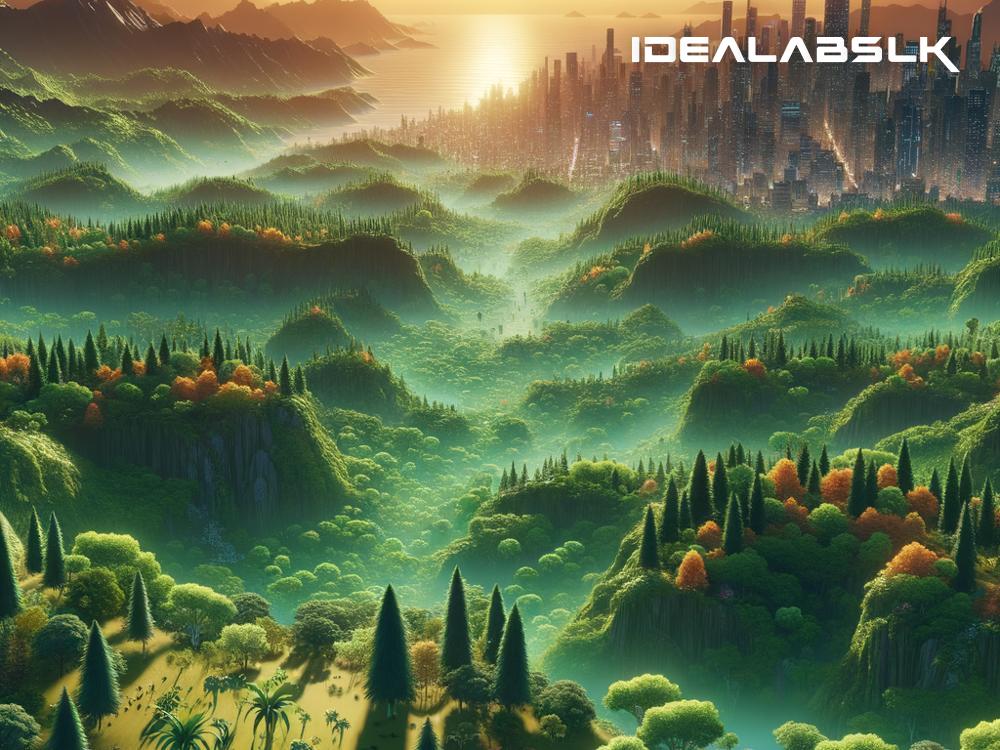AI-Powered Game Worlds: The Future of Gaming in 2025
In the ever-evolving landscape of video gaming, one of the most thrilling advancements on the horizon is the integration of Artificial Intelligence (AI) into the actual game worlds we explore and enjoy. By 2025, we're expected to see an explosion of AI-powered, procedurally generated game worlds that promise to redefine what it means to dive into a video game. Let's break down this futuristic concept into bite-sized pieces and explore how machine learning will pave the way for these intriguing virtual spaces.
What Are Procedurally Generated Game Worlds?
First off, let's talk about procedurally generated game worlds. In simple terms, this is when a game automatically creates its content — landscapes, quests, characters, and more — based on a set of rules, rather than having game developers manually craft every detail. This isn't entirely new; games have been using rudimentary forms of procedural generation for years. But we're on the brink of something much bigger and more complex, thanks to AI.
The Role of AI and Machine Learning
AI and machine learning are like the secret sauce that's about to supercharge procedurally generated worlds. While traditional programming relies on a specific set of instructions to create content, machine learning allows a system to learn from data, identify patterns, and make decisions with minimal human intervention. This means that AI can gradually learn to create game worlds that are not just vast but also rich in detail, variety, and uniqueness.
Imagine stepping into a game where every mountain, forest, and city is not only different from what other players see but also packed with intricate details that are typically handcrafted by developers. This is the potential of AI-powered game worlds; they're dynamic, ever-changing, and tailored to provide a unique experience for every player.
The Promise of Endless Exploration in 2025
By 2025, gamers could have access to game worlds that are literally endless. With AI continuously generating new content, the boundaries of game worlds will be limited only by the players' curiosity. Gone will be the days of memorizing map layouts or running out of quests to complete. Every login could offer a new story to unfold, a previously unseen territory to explore, and unique challenges to overcome.
This doesn't just mean bigger worlds, but also more lifelike and engaging ones. AI could create ecosystems where creatures behave more realistically, weather patterns affect gameplay, and your actions have lasting consequences on the game world. The level of immersion and realism could be unlike anything we've seen before.
The Challenges Ahead
Of course, this brave new world of gaming doesn't come without its challenges. One of the biggest hurdles will be ensuring that AI-created content is coherent, engaging, and fun. There's a delicate balance between randomness and relevancy, and game developers will need to fine-tune their algorithms to ensure the generated content enriches the gaming experience rather than detracts from it.
Another challenge is the hardware. Procedurally generating game worlds in real-time requires significant computing power. By 2025, advancements in hardware and cloud computing are expected to mitigate this issue, but it will be interesting to see how this technology evolves to meet the demand.
Ethical Considerations
As AI begins to play a larger role in content creation, there will also be ethical considerations to address. How much control should AI have in the creative process? How do we ensure that AI-generated content aligns with societal values and standards? These are questions that developers and the gaming community will need to explore as this technology matures.
Conclusion
The future of video gaming looks incredibly bright, with AI-powered, procedurally generated game worlds set to offer an unprecedented level of depth, variety, and immersion. By 2025, we expect to see significant strides towards this future, transforming the way we play and experience video games. As we look forward to these advancements, it's also crucial to navigate the challenges and ethical implications with care, ensuring that AI enhances our gaming worlds in positive and meaningful ways. The journey towards AI-powered gaming worlds is just beginning, and it promises to be an exciting one.

